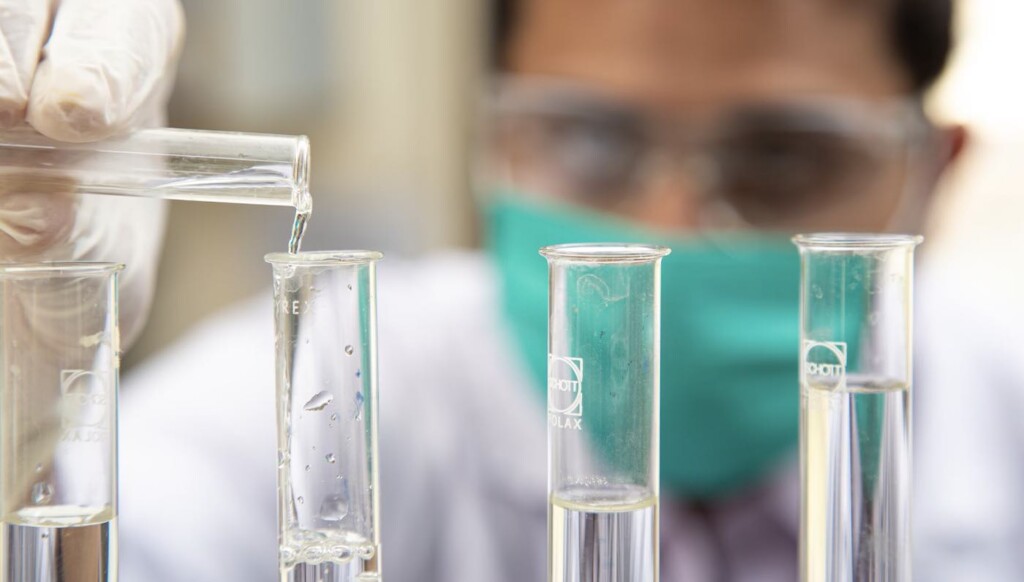- Good News Network
- Hits: 0
Oxford Breakthrough Could Allow Cancer to be Detected 7 Years Earlier Than Current Methods
 By Talha Hassan
By Talha HassanOxford University scientists have discovered proteins in the blood that could warn people of cancer more than seven years earlier than currently possible.
In two studies, they identified 618 proteins linked to 19 different types of cancer, including 107 proteins in a group of people whose blood was collected at least seven years before diagnosis.
The research team discovered that the proteins could be involved at the very earliest stages of cancer, when the disease could be prevented.
The team believes the breakthrough could not only help treat the disease at an earlier stage, but even prevent it altogether.
They used a powerful technique called proteomics which allows them to analyze a large set of proteins in tissue samples at a single point in time, to see how they interact with each other—and find any important differences in proteins between different tissue samples.
In the first study, scientists analyzed blood samples taken from more than 44,000 British people, including more than 4,900 people who were subsequently diagnosed with cancer.
Using proteomics, the researchers analyzed a set of 1,463 proteins from a single sample of blood from each person. They compared the proteins of people who did and did not go on to be diagnosed with cancer to look for differences between them and find out which ones were linked to the disease risk.
CURE FIRST: Belgian Boy is the First Child in the World to Have Been Cured of Brain Stem Glioma, a Brutal Cancer
The researchers also identified 182 proteins that differed in the blood three years before a cancer diagnosis took place.
In the second study, the team looked at genetic data from more than 300,000 cancer cases to do a “deep dive” into which blood proteins were involved in cancer development and could be targeted by new treatments.
They found 40 proteins in the blood that influenced someone’s risk of getting nine different types of cancer.
While altering the proteins may increase or decrease the chances of someone developing cancer, the researchers also discovered which ones may lead to “unintended side-effects”.
But the team, whose findings were published in the journal Nature Communications, stressed that they will need to do further research to find out the exact role the proteins play in cancer development. They also need to work out which of the proteins are the most reliable ones to test for, what tests could be developed to detect the proteins and which drugs could target them.
“To save more lives from cancer, we need to better understand what happens at the earliest stages of the disease,” said Dr. Keren Papier, co-author of the first study.
“We need to study these proteins in depth to see which ones could be reliably used for prevention,” explained Dr. Papier, a Senior Nutritional Epidemiologist at Oxford Population Health.
“Data from thousands of people with cancer has revealed really exciting insights into how the proteins in our blood can affect our risk of cancer,” said Dr. Papier.
TASTY TIP: Delicious Cancer Breakthrough: Pomegranates Found to Significantly Fuel Tumor-Fighting Immune Cells
“The genes we are born with, and the proteins made from them, are hugely influential in how cancer starts and grows,” explained co-author Dr Joshua Atkins, a Senior Genomic Epidemiologist.
Thanks to the thousands of people who gave blood samples to UK BioBank, researchers can build a much more comprehensive picture of how genes influence cancer development over many years.
“We’ve predicted how the body might respond to drugs that target specific proteins, including potential side-effects. Before clinical trials, we have some early indications of which proteins we might avoid targeting because of unintended side-effects,” said co-author Dr. Karl Smith-Byrne.
“This research brings us closer to being able to prevent cancer with targeted drugs – once thought impossible but now much more attainable,” said the Senior Molecular Epidemiologist at Oxford,
“To be able to prevent cancer, we need to understand the factors driving the earliest stages of its development,” said another team member Professor Ruth Travis.
“These studies are important because they provide many new clues about the causes and biology of multiple cancers, including insights into what’s happening years before a cancer is diagnosed.”
“We now have technology that can look at thousands of proteins across thousands of cancer cases, identifying which proteins have a role in the development of specific cancers, and which might have effects that are common to multiple cancer types,” exclaimed Prof. Travis.
Dr. Iain Foulkes, an executive director at Cancer Research UK, which funded the work said, “Preventing cancer means looking out for the earliest warning signs of the disease.
“That means intensive, painstaking research to find the molecular signals we should pay closest attention to.”
“Discoveries from this research are the crucial first step towards offering preventative therapies which is the ultimate route for giving people longer, better lives, free from the fear of cancer.”
THINK ABOUT Sharing The Detection News on Social Media…
Source link

